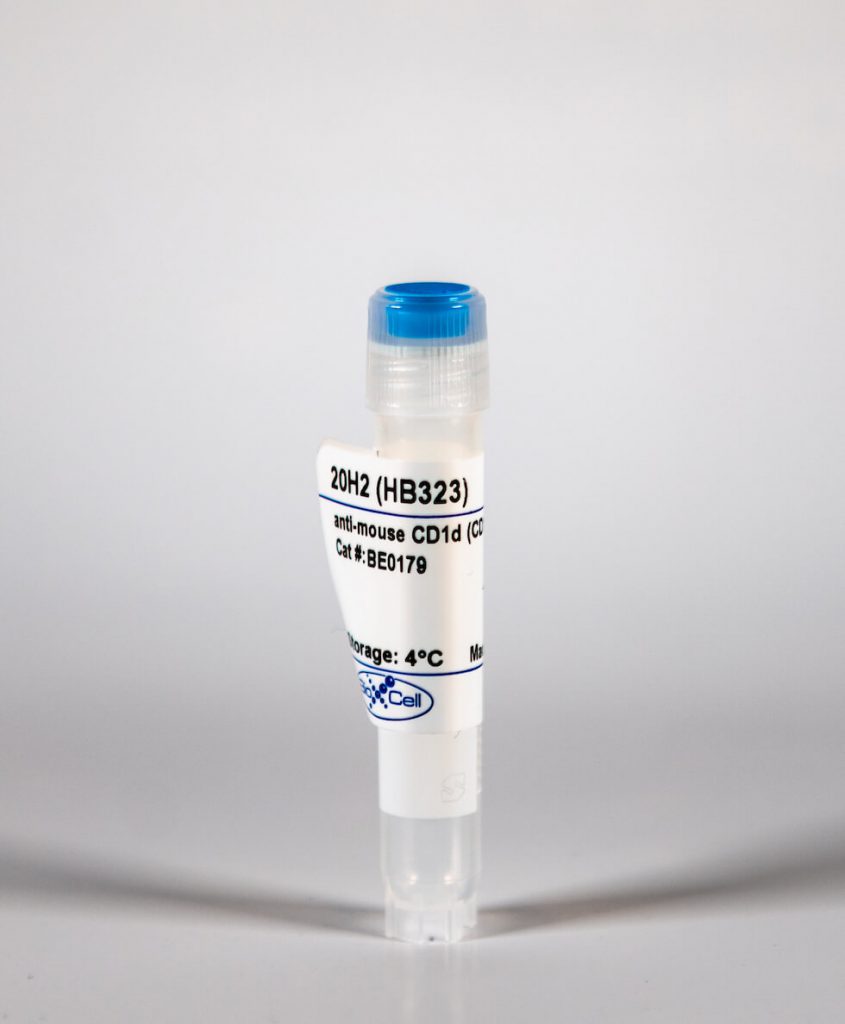InVivoMab anti-mouse MHC Class I (H-2Kd, H-2Dd)
| Clone | 34-1-2S | ||||||||||||
|---|---|---|---|---|---|---|---|---|---|---|---|---|---|
| Catalog # | BE0180 | ||||||||||||
| Category | InVivoMab Antibodies | ||||||||||||
| Price |
|
The 34-1-2S monoclonal antibody is reported to react with the mouse H-2Kb and H-2Dd MHC class I alloantigens. MHC class I antigens are heterodimers consisting of one alpha chain (44 kDa) associated with β2 microglobulin (11.5 kDa). The antigen is expressed by all nucleated cells at varying levels. MHC Class I molecules present endogenously synthesized antigenic peptides to CD8 T cells.'
| Isotype | Mouse IgG2a, κ |
| Recommended Isotype Control(s) | InVivoMAb mouse IgG2a isotype control, unknown specificity(BE0085) |
| Recommended InVivoPure Dilution Buffer | InVivoPure pH 7.0 Dilution Buffer(IP0070) |
| Immunogen | BDF mouse spleen cells |
| Reported Applications | in vivo activation of APCs |
| Endotoxin |
|
| Purity |
|
| Formulation |
|
| Sterility | 0.2 μM filtered |
| Production | Purified from tissue culture supernatant in an animal free facility |
| Purification | Protein G |
| Storage | The antibody solution should be stored at the stock concentration at 4°C. Do not freeze. |
| RRID | AB_10950841 |
| Molecular Weight | 150 kDa |
nVivoMAb anti-mouse MHC Class I (H-2Kd, H-2Dd) (Clone: 34-1-2S)
Kapur, R., et al. (2015). "C-reactive protein (CRP) enhances murine antibody-mediated transfusion-related acute lung injury (TRALI)." Blood. pii: blood-2015-09-672592. PubMed
Transfusion-related acute lung injury (TRALI) is a syndrome of respiratory distress triggered by blood transfusions and is the leading cause of transfusion-related mortality. TRALI has primarily been attributed to passive infusion of human leucocyte antigen (HLA) and/or human neutrophil antigen (HNA) antibodies present in transfused blood products and predisposing factors such as inflammation are known to be important for TRALI-initiation. Since the acute phase protein C-reactive protein (CRP) is highly up-regulated during infections and inflammation and can also enhance antibody-mediated responses such as in vitro phagocytosis, respiratory burst and in vivo thrombocytopenia, we investigated whether CRP affects murine antibody-mediated TRALI induced by the anti-MHC antibody, 34-1-2s. We found that BALB/c mice administered with 34-1-2s or CRP alone were resistant to TRALI, but mice injected with 34-1-2s together with CRP had significantly enhanced lung damage and pulmonary edema. Mechanistically, 34-1-2s injection with CRP resulted in a significant synergistic increase in plasma levels of the neutrophil chemoattractant, macrophage inflammatory protein-2 (MIP-2) and pulmonary neutrophil accumulation. Importantly, murine MIP-2 is the functional homologue of human IL-8, a known risk factor for human TRALI. These results suggest that elevated in vivo CRP levels, like those observed during infections, may significantly predispose recipients to antibody-mediated TRALI reactions and support the notion that modulating CRP levels is an effective therapeutic strategy to reduce TRALI-severity.






